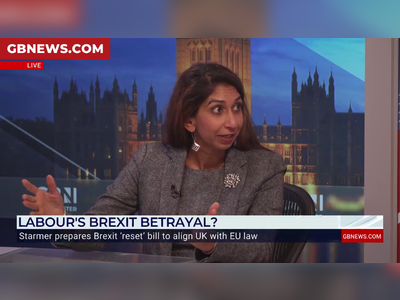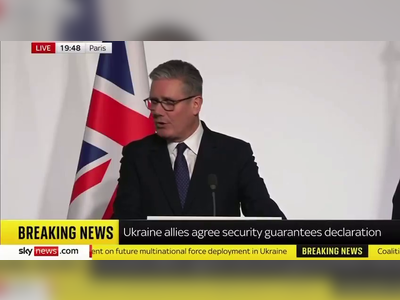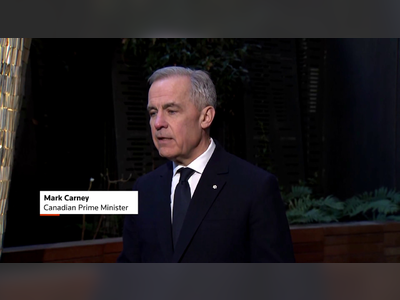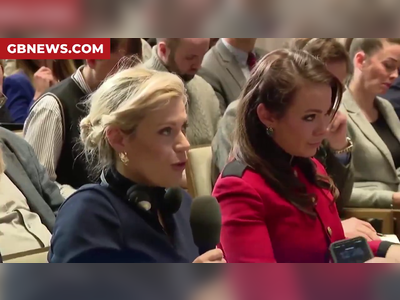
EU Offers Mutual Tariff Elimination Proposal to the US Amid Trade Tensions
Ursula von der Leyen announces readiness for negotiations as US tariffs provoke European response.
The European Union (EU) has formally proposed to the United States a mutual elimination of tariffs on industrial goods, showcasing its readiness to engage in negotiations despite existing trade tensions.
EU Commission President Ursula von der Leyen announced this initiative in Brussels, reinforcing the EU's commitment to reaching a beneficial agreement.
The offer was initially extended prior to recent tariff decisions made by President Donald Trump and has been reiterated as recently as last Friday.
Von der Leyen highlighted that discussions surrounding free trade for automobiles have occurred, although they did not yield a satisfactory response from the US. In a related context, US President's advisor Elon Musk, who is also the CEO of Tesla, expressed his support for the creation of a transatlantic free trade zone that would eliminate tariffs entirely.
Musk made these remarks during a political event in Florence, Italy, where he advocated for a strengthened partnership between the US and Europe.
Furthermore, Von der Leyen indicated that the EU is preparing for potential countermeasures should these trade discussions not progress.
This includes the establishment of an 'import task force' intended to monitor the implications of US tariffs on European industries and to defend against potential shifts in trade flows from other regions.
This task force aims to gather substantial evidence to support future political actions, involving collaboration with various industry stakeholders.
In her address, Von der Leyen also outlined the EU's plans to enhance trade relations with additional countries, mentioning India, Thailand, Malaysia, and Indonesia as key partners.
She referenced existing trade agreements with the South American trade bloc Mercosur, and forthcoming deals with countries including Mexico and Switzerland.
Importantly, she pointed out that 83 percent of global trade occurs outside of the United States.
The administration of Donald Trump has implemented tariffs as part of a strategy to rectify perceived trade imbalances and incentivize manufacturing relocation to the US, with the revenue generated from these tariffs aimed at partially funding significant tax cuts promised during his election campaign.
The future implications and practical outcomes of the EU's tariff elimination proposal remain unclear.
EU Commission President Ursula von der Leyen announced this initiative in Brussels, reinforcing the EU's commitment to reaching a beneficial agreement.
The offer was initially extended prior to recent tariff decisions made by President Donald Trump and has been reiterated as recently as last Friday.
Von der Leyen highlighted that discussions surrounding free trade for automobiles have occurred, although they did not yield a satisfactory response from the US. In a related context, US President's advisor Elon Musk, who is also the CEO of Tesla, expressed his support for the creation of a transatlantic free trade zone that would eliminate tariffs entirely.
Musk made these remarks during a political event in Florence, Italy, where he advocated for a strengthened partnership between the US and Europe.
Furthermore, Von der Leyen indicated that the EU is preparing for potential countermeasures should these trade discussions not progress.
This includes the establishment of an 'import task force' intended to monitor the implications of US tariffs on European industries and to defend against potential shifts in trade flows from other regions.
This task force aims to gather substantial evidence to support future political actions, involving collaboration with various industry stakeholders.
In her address, Von der Leyen also outlined the EU's plans to enhance trade relations with additional countries, mentioning India, Thailand, Malaysia, and Indonesia as key partners.
She referenced existing trade agreements with the South American trade bloc Mercosur, and forthcoming deals with countries including Mexico and Switzerland.
Importantly, she pointed out that 83 percent of global trade occurs outside of the United States.
The administration of Donald Trump has implemented tariffs as part of a strategy to rectify perceived trade imbalances and incentivize manufacturing relocation to the US, with the revenue generated from these tariffs aimed at partially funding significant tax cuts promised during his election campaign.
The future implications and practical outcomes of the EU's tariff elimination proposal remain unclear.
AI Disclaimer: An advanced artificial intelligence (AI) system generated the content of this page on its own. This innovative technology conducts extensive research from a variety of reliable sources, performs rigorous fact-checking and verification, cleans up and balances biased or manipulated content, and presents a minimal factual summary that is just enough yet essential for you to function as an informed and educated citizen. Please keep in mind, however, that this system is an evolving technology, and as a result, the article may contain accidental inaccuracies or errors. We urge you to help us improve our site by reporting any inaccuracies you find using the "Contact Us" link at the bottom of this page. Your helpful feedback helps us improve our system and deliver more precise content. When you find an article of interest here, please look for the full and extensive coverage of this topic in traditional news sources, as they are written by professional journalists that we try to support, not replace. We appreciate your understanding and assistance.











